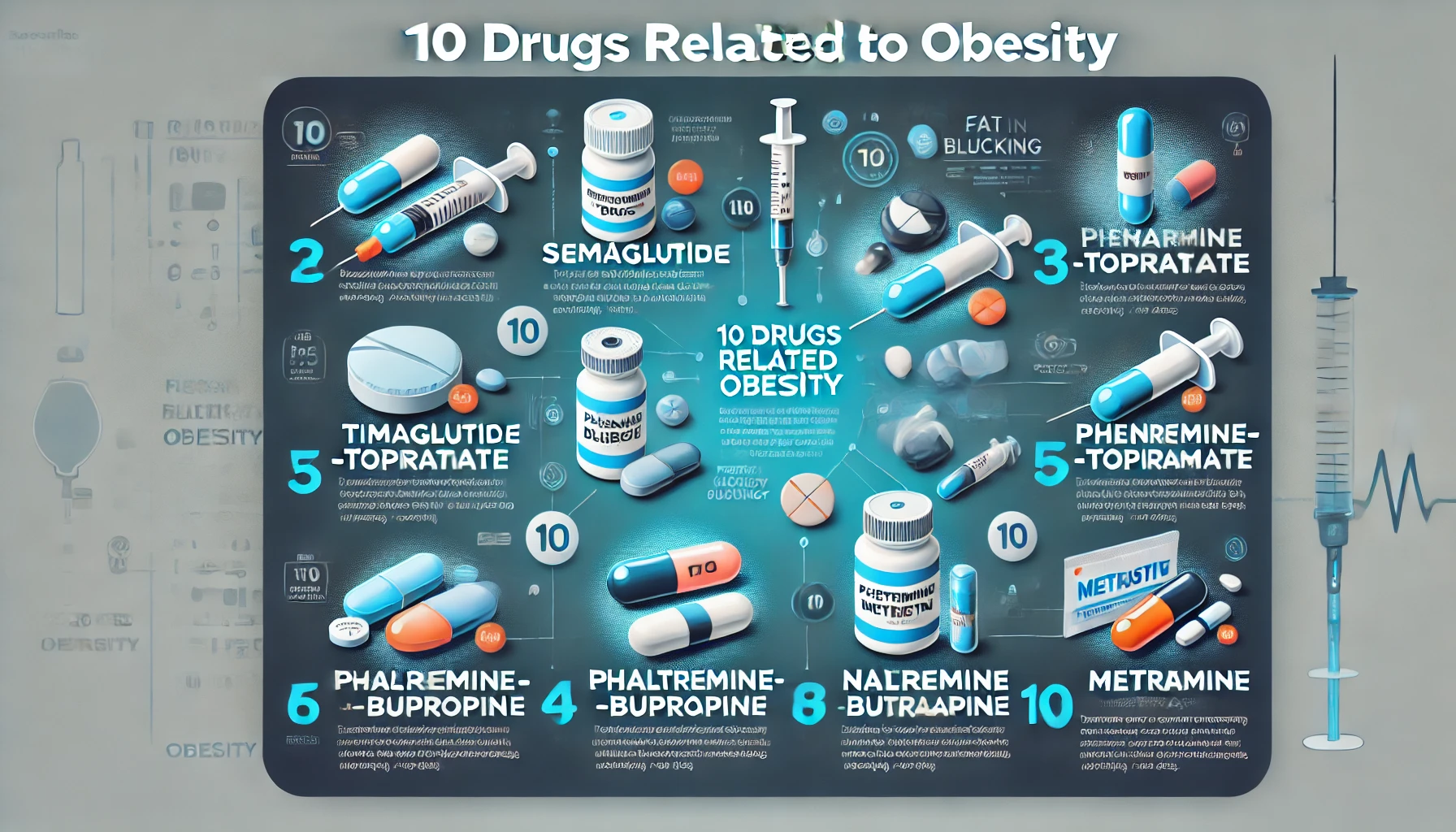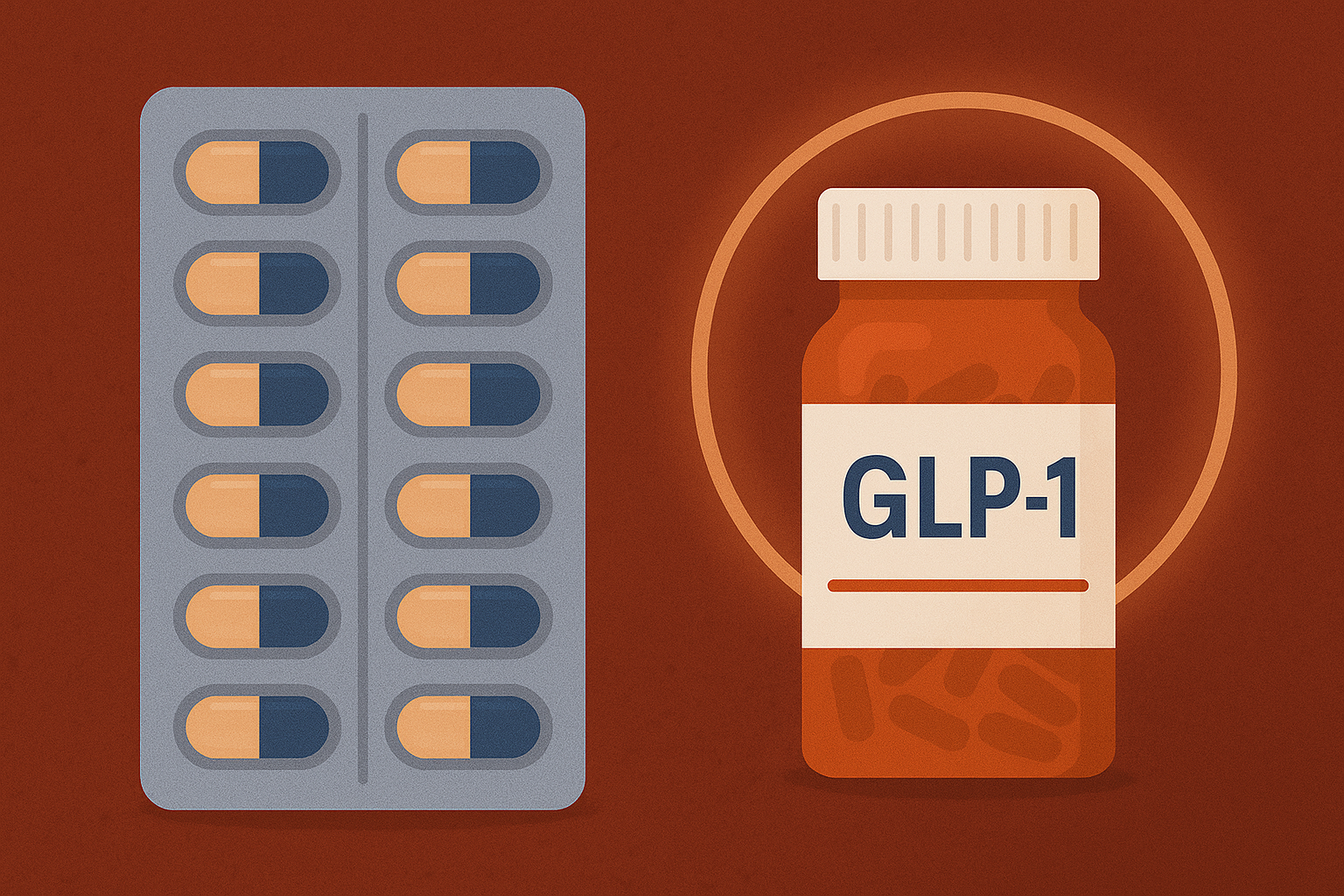Obesity is a growing global health concern, with medications playing a crucial role in its management. Some drugs aid in weight loss, while others may contribute to weight gain. Here’s a look at 10 key drugs related to obesity:
1. Semaglutide (Wegovy, Ozempic)
A GLP-1 receptor agonist that reduces appetite and enhances satiety. Wegovy is FDA-approved for weight loss, while Ozempic is primarily for diabetes.
2. Tirzepatide (Mounjaro, Zepbound)
A dual GIP/GLP-1 receptor agonist; Zepbound is approved for obesity, and Mounjaro is a diabetes drug with strong weight loss effects.
3. Liraglutide (Saxenda)
A GLP-1 receptor agonist specifically approved for obesity, requiring daily injections.
4. Phentermine-Topiramate (Qsymia)
A combination drug that suppresses appetite (phentermine) and enhances satiety (topiramate).
5. Orlistat (Xenical, Alli)
A lipase inhibitor that blocks fat absorption. Available by prescription (Xenical) and over-the-counter (Alli).
6. Naltrexone-Bupropion (Contrave)
Combines an opioid antagonist (naltrexone) and an antidepressant (bupropion) to reduce cravings.
7. Phentermine
A stimulant and appetite suppressant approved for short-term use.
8. Setmelanotide (Imcivree)
Used for rare genetic obesity disorders, not general obesity.
9. Metformin
Primarily a diabetes drug but often used off-label for modest weight loss.
10. Olanzapine (Zyprexa)
An antipsychotic known for causing weight gain rather than weight loss.
Drugs 1-8 are primarily for obesity treatment, Metformin is used off-label, and Olanzapine contributes to weight gain.
Key Facts About Obesity(WHO)
- In 2022, 1 in 8 people globally were living with obesity.
- Since 1990, adult obesity has doubled, and adolescent obesity has quadrupled worldwide.
- 2.5 billion adults (18+) were overweight in 2022, with 890 million classified as obese.
- 43% of adults aged 18+ were overweight, and 16% were obese.
- 37 million children under 5 were overweight in 2022.
- Among children and adolescents aged 5–19 years, 390 million were overweight, including 160 million with obesity.
Obesity remains a major global health challenge, requiring a combination of medication, lifestyle changes, and policy interventions to address it effectively.



